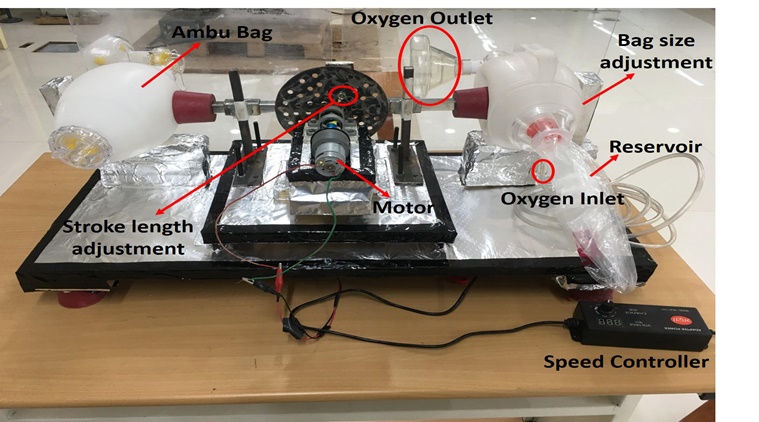IITs create portable ventilator to meet demand for coronavirus patients
While IIT Ropar had created one out of available material, Hyderabad's ventilator works on future technology and operates without any human contact.
 The ventilator created by IIT Ropar
The ventilator created by IIT Ropar
With the demand for ventilators rising, the Indian Institute of Technology (IIT) Ropar claims to have created a machine out of scrap to act as a portable ventilator. Since it is made of easily available items, the product is much cheaper and easy to transport than those currently available, said the institute in a press release. Several other IITs including Roorkee and Hyderabad have also created similar products.
“As COVID-19 is a respiratory viral infection, the need of ventilators has increased exponentially. The cost of available high-end ventilators is around Rs 5 to 7 lakh. One cheaper option is the manual resuscitator, in which a person presses an Ambu (artificial manual breathing unit) bag continuously to supply oxygen to the patient. To reduce human effort and fatigue, we have developed a setup for automatic compression of the Ambu bag,” the IIT Ropar team said. They have earlier, created DIY masks against coronavirus which the institute claimed were at par with N95 masks.
As per the press release, the mechanism can simultaneously squeeze two bags which benefit two patients at a time. It can include different sizes of the bags individually depending upon the age and lung capacity of the patient. Also, the two bags attached can work individually with varying compression. The set-up, claims IIT-Ropar, can be operated at different compression speeds as well. Researchers are now working to add more functionalities to the set-up, which costs Rs 5000, inclusive of the bags.
Read| How coronavirus disrupted Indian students’ study abroad dream
IIT-Hyderabad’s device ‘Jeevan Lite’ is created by a start-up incubated at the institute called Aerobiosys Innovations. While IIT Ropar had created one out of available material, the Hyderabad’s ventilator works on future technology. Jeevan Lite is IoT-enabled and can be operated through an app. This ensures no human contact with the patient.
IIT Roorkee’s ventilator ‘Prana-Vayu’ is a closed-loop ventilator that is developed in collaboration with AIIMS-Rishikesh. The institute claims that it does not require compressed air for functioning and can be especially useful in cases when hospital wards or open areas are converted into ICUs. It is equipped with real-time spirometry and alarms and can automatically limit high pressure with an alarm system.
Read| Potential vaccine to test kits: What IIT researchers have done so far
In case of a failure, the circuit opens to the atmosphere, which prevents choking. Some additional features are remote monitoring by health professionals, touch-screen control of all operating parameters, moisture and temperature control for inhaled air. The manufacturing cost per ventilator is estimated at Rs 25,000, as per IIT Roorkee.





- 01
- 02
- 03
- 04
- 05


























